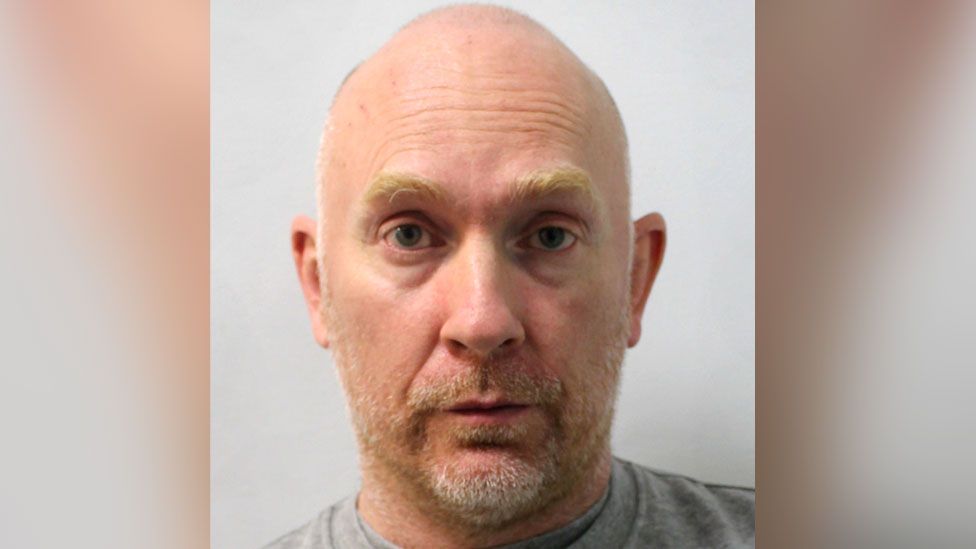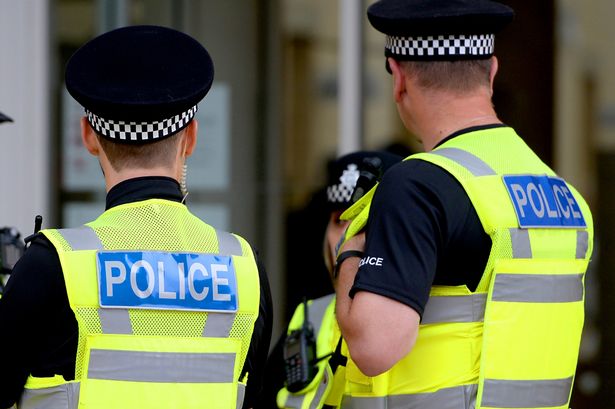By Gabriel Princewill-
Greater Manchester Police say that can’t suspend a police marksman whose finger prints were found on a gun found during a house raid, unless they have another role for him.
Suspension, according to the GMP press office, should only occur where effective investigation may be prejudiced unless the police officer is suspended or where the public interest, having regard to the nature of the allegation and any other relevant considerations, requires that the officer should be suspended.
A whistle blower in the force revealed last week that the finger prints of one of GMP’s marksmen was found on a gun during a gang raid, despite the marks man having not been part of the raid in question. Whilst the British public should count itself extremely lucky that a police officer was careless enough to leave his prints on a gun which found its way to a property in which a gang raid was conducted, there is cause for alarm that the force is woefully failing the accountability test in terms of its judiciousness and transparency.
The force have launched an internal probe into the case, but a criminal prosecution is intuitively the direction in which such a case with this material fact ought to head. Why an internal probe has been opted for this case is unknown, and such a probe shouldn’t take more than a few days to determine before another announcement is made.
The force did not expressly refer to the officer in question whose identity has still not been disclosed, but implied it when they told this publication that IOPC guidelines state that they cannot suspend an officer unless another role is provided for the officer.
In a statement to The Eye Of Media.Com, Greater Manchester Police said:
The decision to suspend a police officer will only be taken where a temporary move to a new location or role has been considered but is not appropriate in all the circumstances of the case and it appears to the Appropriate Authority that either
a) An effective investigation may be prejudiced unless the police officer is suspended or
b) The public interest, having regard to the nature of the allegation and any other relevant considerations, requires that the officer should be suspended’
Addressing questions as to how the marksman’s finger prints were identifiable unless he had committed a previous crime, the force said :”all appropriate police personnel’s biometric data is stored on a database in a bid to identify and reduce contamination events”.
The above criteria for suspension of a serving officer makes worrying reading, given the proliferating examples of deplorable criminal offences that have been committed by unscrupulous police officers in the past year. The case in hand makes suspension imperative by any reasonable standard, where a gun man is shown to be potentially among a gang.
The IOPC told this publication during a discussion about the incident that there was no reason a police force should not be able to disclose to a journalist whether an officer was to be suspended or not, or whether indeed it planned to pursue criminal proceedings.
The spokesperson also expressed concern that the identity of policers officers are kept anonymous following findings of serious misconduct in which they are dismissed from the force, or leave voluntarily.
‘ Police officers found guilty of misconduct can in theory walk into another job without the employer knowing who they are since the pictures are not published.
However, they will never be able to work in the police force again. There are other ways an employer can discover a police officer’s dark professional past, especially where the officers needs to disclose their previous profession. There might be jobs that won’t check, but but there might be data protection laws that prevents the force disclosing their identity in misconduct cases”.
The spokesperson refused to be drawn into the particular force in question, instead pointing to the internal inquiry as a process to be exhausted, and its findings known, before a view or judgement on whether a criminal investigations should follow.
Whether data protection laws can fully justify hiding the visual identity of an officer found to be guilty of misconduct is a matter of interpretation. The presiding rules that govern internal investigations in the police force are more bureaucratic than rationally based.
The police regulator is keeping an eye on developments with the probe, but will not intervene until a given time period has lapsed for an outcome, and either a complaint or referral is made.
Worried residents of Greater Manchester believe the force, notorious for misconduct over the years ,may have a gun man in their midst, who could potentially use his police badge to commit criminal atrocities in the future if he already mixes with crime gangs. Some have expressed their concern that drug dealers exist in the police force, using abusing their professional positions for personal and sometimes, criminal gains.
Revelation that officers with criminal records exist in the police force is one of the most sober and chilling realities revealed of late in the British press. It calls for urgent redressal, and the buck falls on police chiefs and the Ministry Of Justice. In the absence of a much needed overhaul of the police force, it will be one of the most discredited professions when it comes to honour and integrity.
Crooks in the force posing as law enforcement agents is an affront to the intelligence of any functioning democratic society. Change must be a work in progress for the forseeable future.
One mother from Manchester, who declined to be named said ‘a criminal cop who supplies guns to criminals, or is amongst them, can potentially use their police card to kidnap an individual at gun point under the pretext of an arrest. It means he can target an enemy of his gang friend and pose an arrest which could ultimately be a kidnap, and eventually murder.
‘We all saw how Wayne cousins deceptively kidnapped Sarah Everest and raped and killed her. Is this country going to allow that possibility by accommodating criminals in the force?

Wayne Couzens Killed Sarah Everard Image:Met Police
Sarah Everard was abducted in broad day light, raped and killed, by a police officer who used his police badge to pretend to arrest her breaking lockdown rules. The then-Metropolitan Police officer used COVID-19 lockdown rules as an excuse to stop her as she walked home, lock her in the back of his hire car, and then drive her 80 miles to her death in Kent.
A witness saw Couzens, an off-duty Met Police constable, cuff and arrest Ms Everard, and images of them standing together were caught on security cameras on two buses, a refuse lorry and a marked police car. Her death led to mass protests and dries for more assurances to protect women against the dangerous men.
Process
”In any a case of misconduct that requires a criminal prosecution, such an investigation may need to occur first, another media representative told The Eye Of Media.Com . If police officers are suspended each time there is a criminal complaint against them, we would have no officers left to do the job”.
Relatively plausible as the explanation above may be, professionals who have heard this account are united in the view that discretion in cases like this should take precedence over standard practice found to be lacking in prudence, and in it’s fundamental compatibility to the legitimate spirit of any rule.
The British police force has long been dogged by unsavory characters that bring the reputation of the genuine members of the force to much disrepute.
Locals in the Greater Manchester area have lamented a deep seated a deep seated level of corruption in the force which allows criminals to operate as law enforcement agents with impunity. The precise circumstances of how a marksman’s prints found its way to a gun during a gang raid in Greater Manchester is anybody’s guess, but the force is both protecting the identity of the officer in question , and keeping him in his job. whilst it conducts its private club investigation.
A Freedom Of Information Request by The Sun Newspaper a fortnight ago revealed how widespread the recruitment of police officers with a criminal past is in the force- a revelation that will make most law abiding citizens shiver.
Greater Manchester Police told the Uk’s most widely read tabloid that of 15 officers who have been convicted of a crime.
Among these 15 are 10 Constables, a Detective Inspector, two Detective Constables and two Police Sergeants. Their convictions include Common Assault, Driving without Due Care, Driving without Insurance, Failing to have a TV license, Harassment, Putting Person in Fear of Violence, Section 39 Assault and Speeding.
The idea that highly ranked inspectors and detectives have criminal records has to be an embarrassment to the force as a whole. It undermines the clout and honour which would ordinarily be expected to accompany any respectable profession.
Concern in the Manchester area that dodgy cops are being allowed to escape accountability has been growing among locals one also shared by people across various boroughs in the country. It is potentially a horror show.

